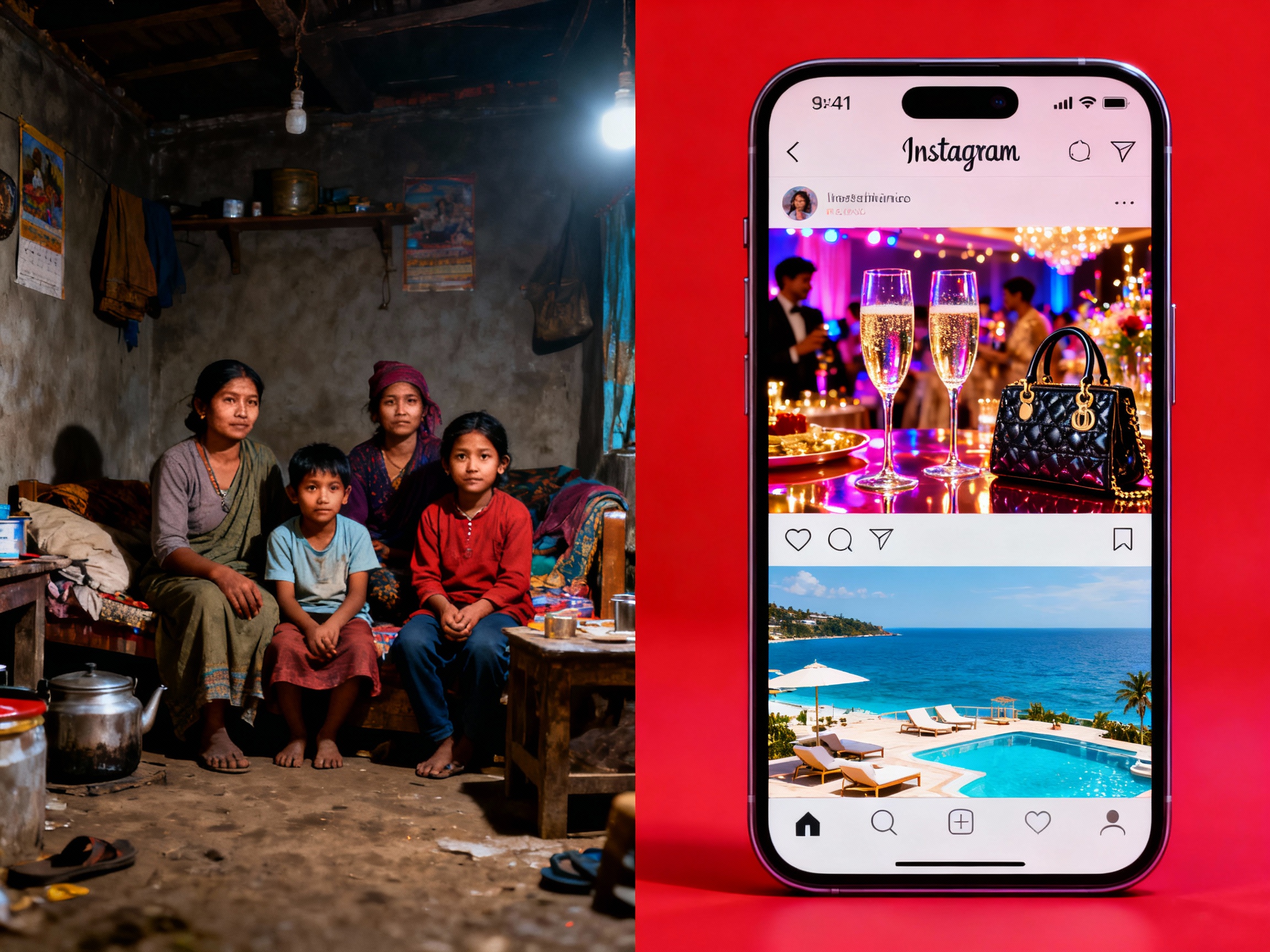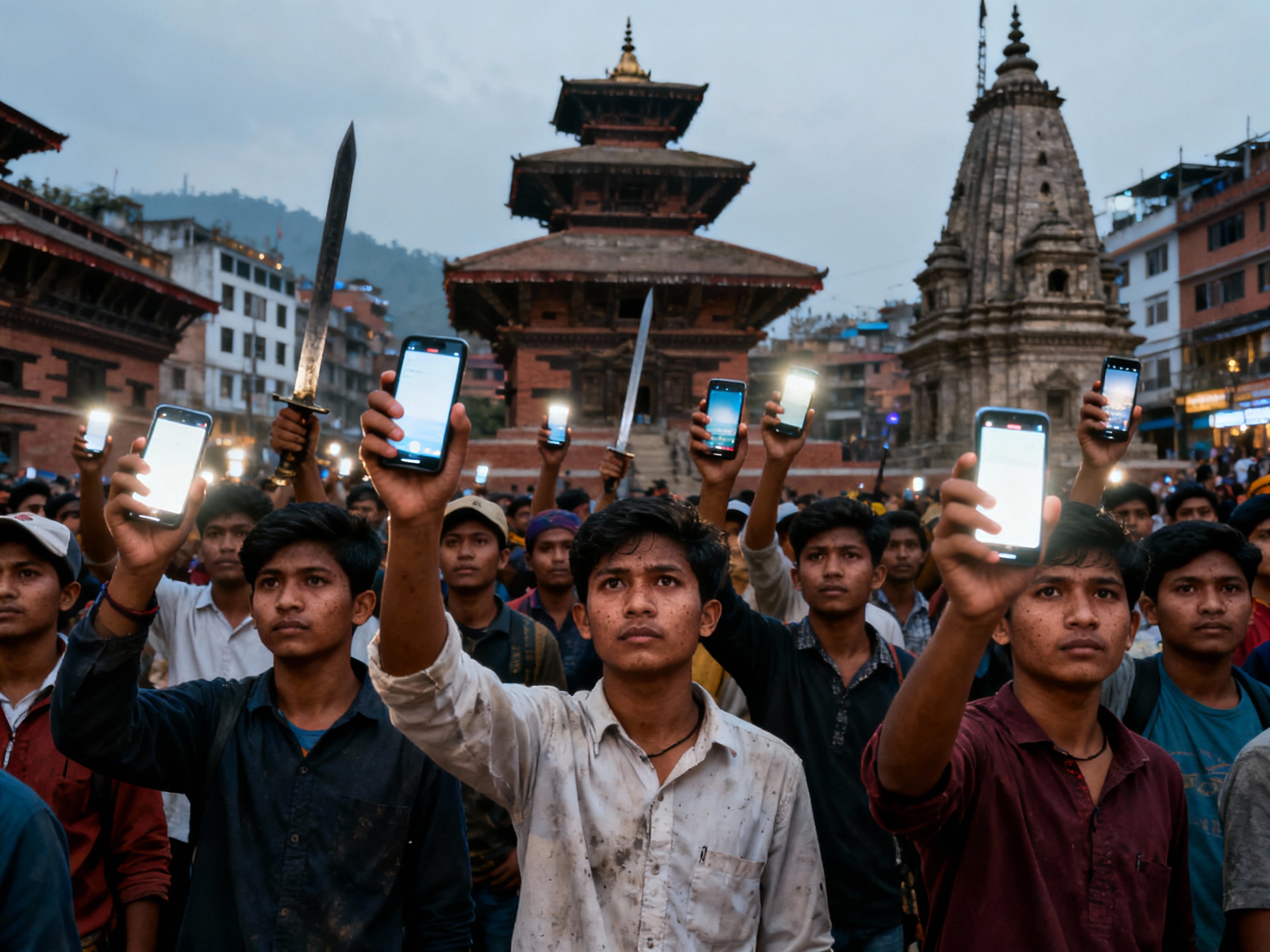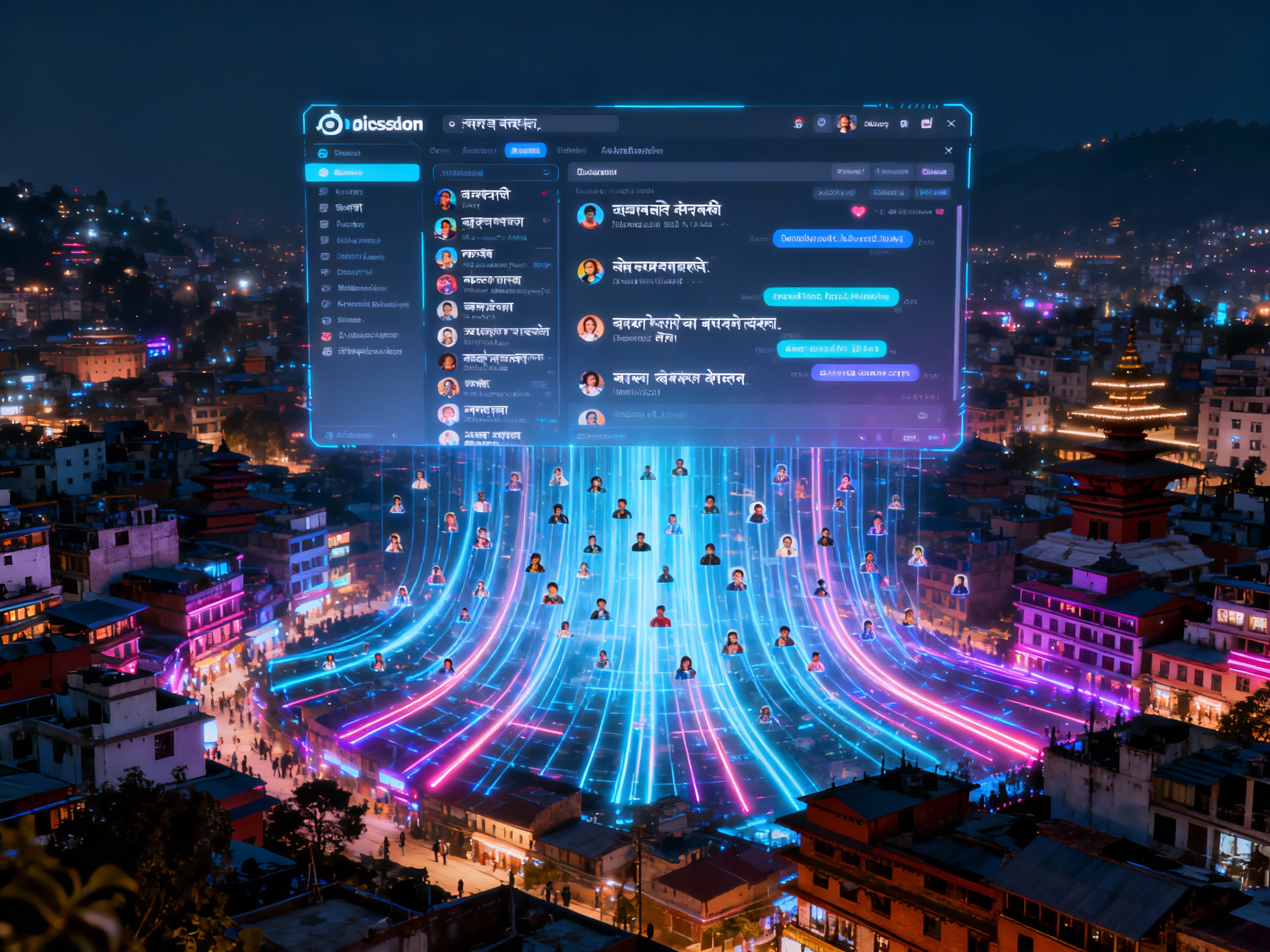
How Instagram posts led to the resignation of the Prime Minister
Imagine: your country has perpetual economic problems, it's hard to find a job, and the children of politicians who run everything live like Hollywood stars. They flaunt their designer clothes, vacations in Bali, and luxury cars on Instagram. And you sit there thinking: "Guys, whose money is all this fun on? Our taxes?"
That's exactly what happened in Nepal. The youth, mostly in their 20s, were tired of corruption and nepotism (when relatives are placed in cushy jobs). They found a great way to show it - they came up with the hashtag #NepoKids (from the word "nepotism") which also sounds like the name of the country Nepal.
This hashtag became a megaphone. Thousands of people started watching, comparing, and getting outraged. One post simply asking "Where is our money?" gained 13,000 likes. The anger from the internet slowly began to spill onto the streets.
The authorities apparently didn't like this very much. And they did what authorities always do when they don't know how to stop the truth: they tried to silence the people. They announced that they were blocking Facebook, YouTube, and a bunch of other sites, claiming they didn't comply with their rules.
Just imagine: you're peacefully sitting on social media, outraged by injustice, and suddenly - bam! - you're no longer there. Your platform for conversation just got shut down.
This was the worst possible move. Instead of extinguishing the fire, they poured gasoline on it. People took to the streets shouting: "Give us back the internet!". Clashes occurred, and unfortunately, there were casualties. But this didn't stop the protest. On the contrary, other people joined the students. Eventually, the parliament building was set on fire, and the Prime Minister resigned.
But the most interesting thing is how people continued to communicate when the main social networks were turned off. More on that next.

Discord, VPN, and "offline internet": What fuels protests when the internet is shut down
So, the authorities turned off Facebook and YouTube. It seemed like all communication was destroyed, and the protest should fall apart. But no! The most interesting part began - a digital game of cat and mouse.
People instantly remembered VPN. It's a magical program that makes it look like you're surfing the internet not from Nepal, but, for example, from Germany or the USA. And since you're "in Germany," you can access all the sites you can't open in your own country. The demand for VPNs in Nepal skyrocketed by an incredible 6000% in just a few days! It was a mass escape into the digital underground.
But what if the entire internet is turned off? That can happen. For this case, there are even trickier technologies.
In Nepal, people rushed to download the app Bitchat. It was created by Jack Dorsey (co-founder of Twitter). The feature of this messenger is that it doesn't need the internet. It transmits messages via Bluetooth, like walkie-talkies, creating its own local network between phones. The authorities can turn off anything, but people in the square can still message each other. Jack Dorsey himself wrote: "Bitchat is where it's needed," when he saw his app being downloaded in Nepal and Indonesia.
And what to do when the internet is back, but you need not just to chat, but to organize? That's when Discord came into play.
Everyone thinks Discord is for gamers. But in reality, it's a powerful communication tool. You can create large chat servers with different channels: for discussing tactics, for news, for debates.
It is there, on Discord servers, that Nepalese activists are now deciding the future of their country. One of these servers has over 145,000 people! They are passionately debating who to appoint as the interim leader instead of the resigned Prime Minister. That's how a gaming messenger became a digital parliament for an entire nation.

Main takeaway: Technology is just a tool. The reason is more important
So what does the story of Nepal show us? A very simple but important thing.
Technologies are not some kind of magic. VPN, Discord, Bitchat - these are just tools. Like a hammer. You can build a house with a hammer, or you can break a window. It all depends on people and their goals.
The authorities in Nepal made a mistake by thinking that by turning off Facebook, they would turn off the people's anger. They fought with the tools, not the reason. And the reason was that people had something to be angry about. And their anger just found other, more modern and smart channels for expression.
A generation that grew up with a smartphone in hand will always find a way to say what it thinks. You can block one door, but it will build ten new ones. And the story of Nepal is the best proof of that.
This is a lesson not only for Nepal but for all of us. The power is not in controlling communication channels, but in justice and the ability to listen to people while they write posts, not when they take to the barricades.

Leave a comment
Comment